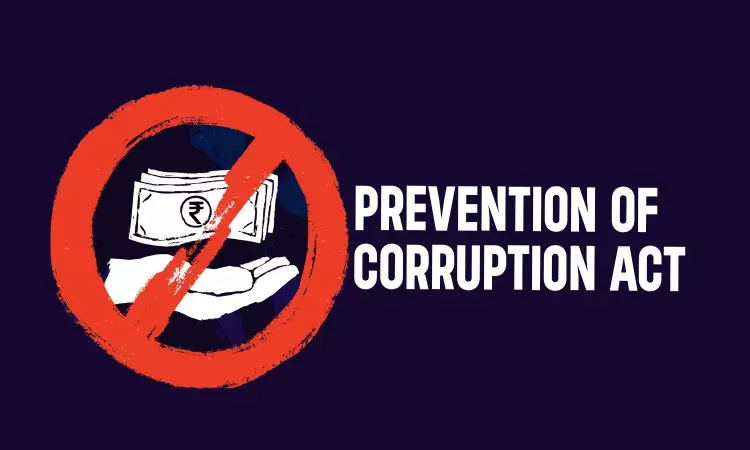- Home
- /
- High Courts
- /
- Rajasthan High Court
- /
- Prior Sanction 'Not Unbridled...
Prior Sanction 'Not Unbridled Shelter' To Protect Corrupt Govt Officials In Face Of Prima Facie Audio/ Video Evidence: Rajasthan High Court
Nupur Agrawal
4 Aug 2025 11:30 AM IST
The Rajasthan High Court said that in cases where "prima facie electronic evidence" in form of voice/video recording is available against accused, then it would be travesty of justice to not allow prosecution against them for non-fulfilment of requirement of prior approval under Section 17-A of the Prevention of Corruption Act. Section 17-A of the PC Act provides that no enquiry or...
The Rajasthan High Court said that in cases where "prima facie electronic evidence" in form of voice/video recording is available against accused, then it would be travesty of justice to not allow prosecution against them for non-fulfilment of requirement of prior approval under Section 17-A of the Prevention of Corruption Act.
Section 17-A of the PC Act provides that no enquiry or investigation should be conducted under the Act, without prior approval, where the alleged offence was relatable to any recommendation made or decision taken by such public servant in discharge of his official functions or duties, provided no such approval was required for cases involving arrest of a person on the spot.
Justice Kuldeep Mathur said that while prior approval under Section 17A for prosecution aims to protect public officials from malicious complaints, however the provision cannot be used a tool to protect corrupt officials who made a recommendation or had taken a particular decision for their own benefit.
"True it is, that requirement of prior approval under Section 17-A of the P.C. Act, 2018 is aimed to protect public officials from malicious, vexatious and baseless complaints that might be filed in relation to any recommendation made or decision taken by the public officials in discharge of official functions or duties. The expression 'recommendation' and 'decision' used under the said Section refers to reasoned, objective and non-arbitrary exercise of discretion while performing official duties in quasi judicial or pure administrative capacity but at the same breath, it cannot be made a tool or used as an unbridled shelter to protect corrupt government officials who have made any recommendation or had taken a particular decision for their personal benefit...This Court is of the firm view that in cases where prima facie electronic evidence in form of voice recording/video recording etc. are available against accused and solely his/her quasi-judicial/administrative decisions/recommendations are not to be assessed or evaluated to find out correctness or truthfulness of the accusation, then it would be a travesty of justice if the prosecution against him is not allowed to be initiated/continued".
The Court was hearing a petition seeking quashing of an FIR filed against the petitioner and the principal of a school (co-accused) alleging demand by them of gratification to settle a complaint against the complainant. Based on the complaint, the trap was set up and the co-accused was caught red-handed, and later the petitioner was also arrested.
It was argued that in light of Section 17-A, since the petitioner was not caught red-handed, and the fact the allegation against him related to a recommendation/decision taken on a complaint against the complainant, the investigation could not have been held without prior approval of the competent authority, which was not taken.
After hearing the contentions and perusing the records, the Court highlighted that the conversation between the petitioner and the co-accused regarding her accepting the gratification on behalf of both of them was recorded. The telephonic conversation prima facie indicated the petitioner's complicitness in the commission of the alleged crime.
It said that in a case where accusation regarding corruption has to be judged or inferred on the basis of quasi-judicial/administrative decisions/recommendations made by the public officials in official files in discharge of official functions or duties, then the previous/prior approval of the competent authority is mandatory before prosecuting him/her as per the mandate of Section 17-A.
Observing that the allegations against the petitioner were very serious and "not merely to be assessed from the quasi-judicial order/recommendation", the Court held that the prayer to quash the FIR based on breach of mandatory provision of Section 17-A had no merit.
"In light of the telephonic conversation between co-accused and petitioner, there is prima facie evidence indicating towards demand of bribe for performance of official act," it said.
Accordingly, the petition was dismissed.
Title: Chandra Kant Ramawat v State of Rajasthan & Anr.
Citation: 2025 LiveLaw (Raj) 261



